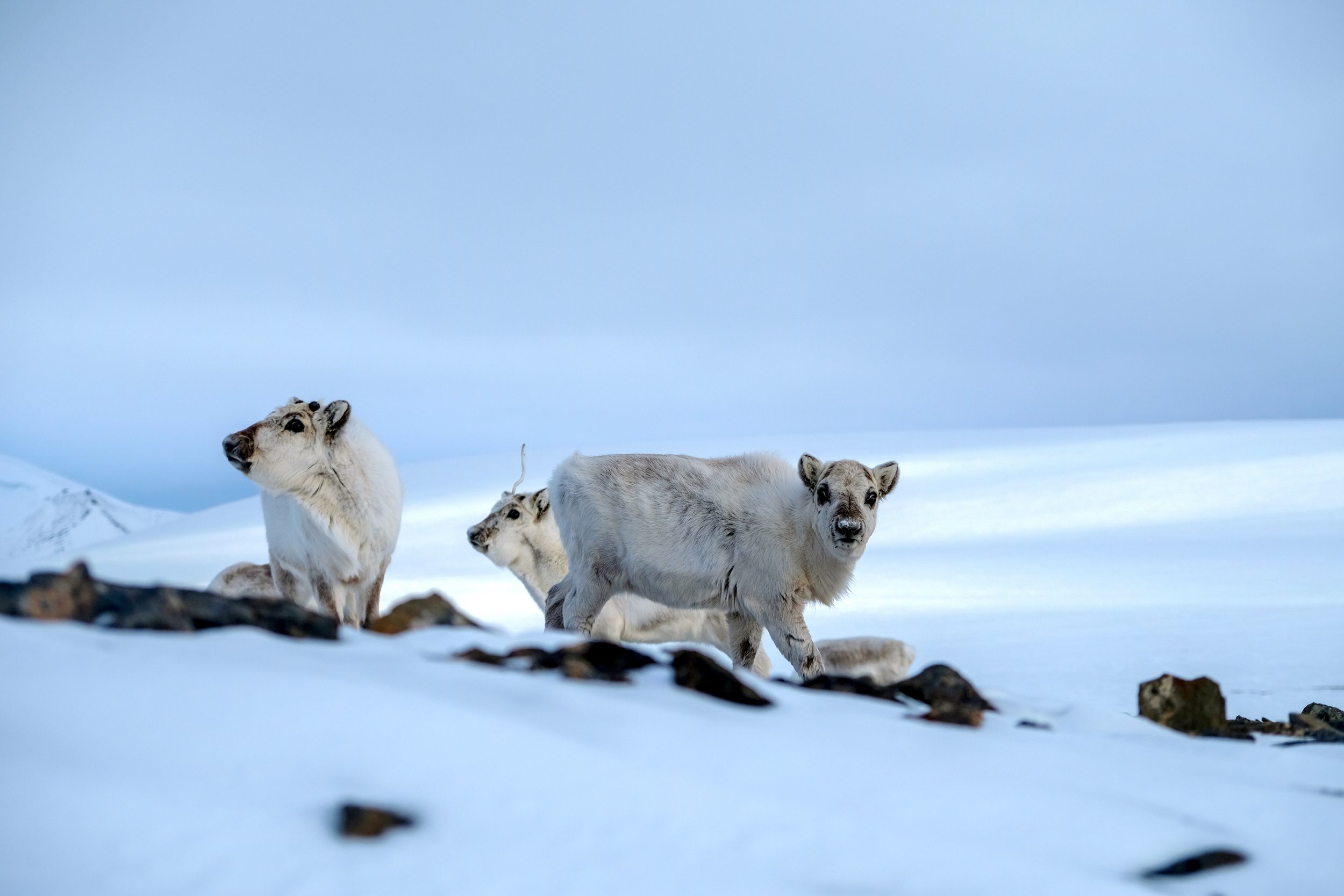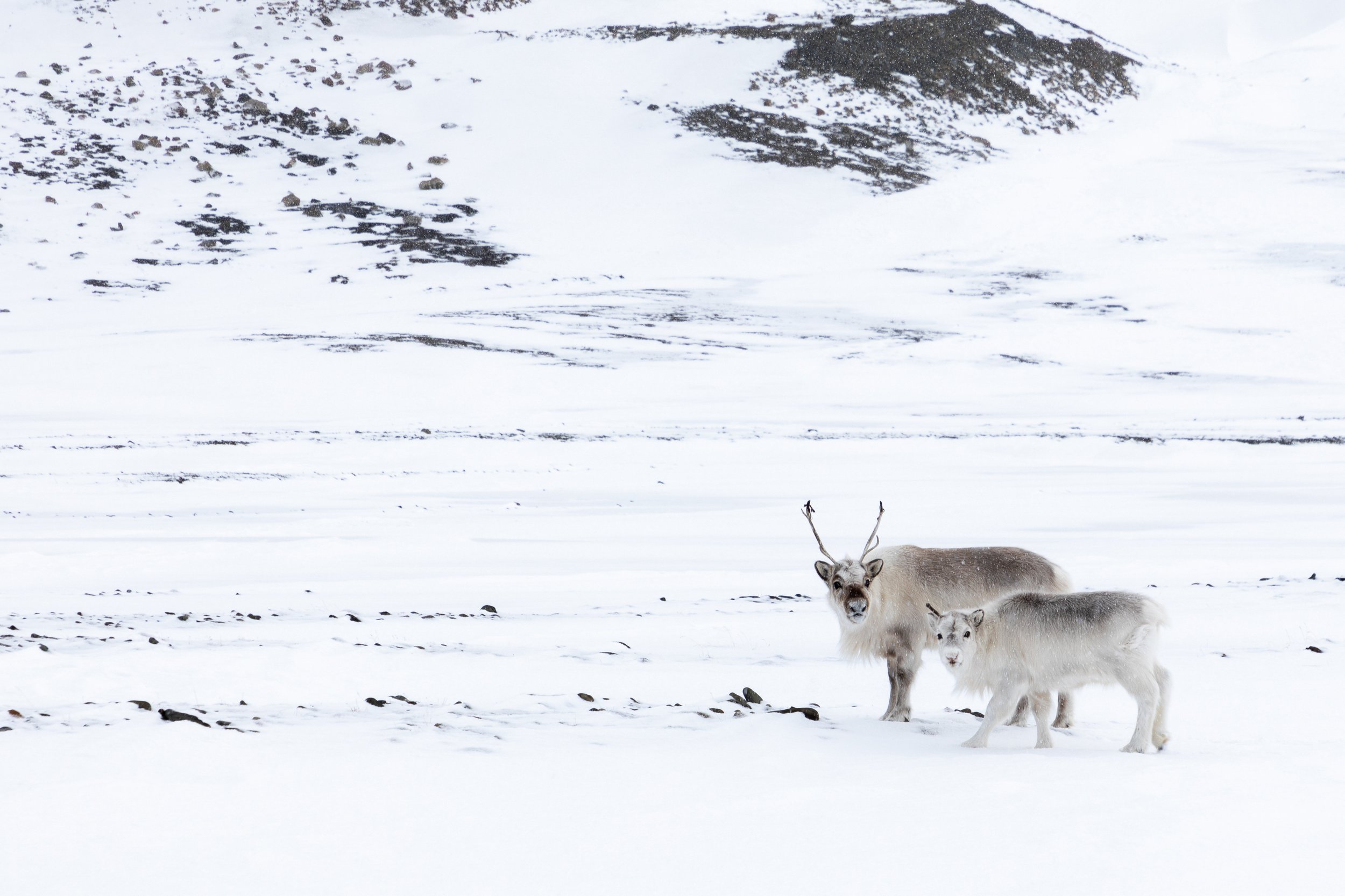
ColdRein is an international scientific project funded by the Research Council of Norway.
Understanding how—and how fast—organisms can respond to environmental change is key for predicting their resilience in facing global climate change. This is especially true in the Arctic, which is experiencing the world’s most pronounced warming.
Svalbard, an isolated, high-Arctic archipelago and the fastest warming site on Earth, is home to an endemic subspecies of wild reindeer that is uniquely adapted to its extreme Arctic home. Following colonization of Svalbard millennia ago, the reindeer population evolved several adaptations to this harsh and highly stochastic environment, including thick fur, a small body, a highly specialized diet, and altered metabolism.
The ColdRein project seeks to directly assess how these isolated animals were able to adapt to a harsh and highly stochastic environment.
To accomplish this, we will apply powerful evolutionary simulations and implement cutting-edge approaches to analyze hundreds of whole-genome sequences from modern reindeer populations from polar regions, including Svalbard.
We will use this information to investigate how long-term changes in population size and dispersal reflect changes in the environment, such as gain or loss of sea ice corridors.
Then, using genome sequences derived from ancient reindeer bones and antlers collected from the archipelago, we’ll look directly back in time through the history of Svalbard reindeer evolution, identifying the genetic changes that enabled the reindeer’s rapid evolution, and tracking these changes in time and space.


